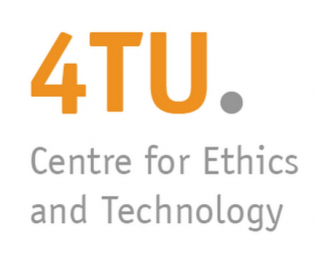Comprehensive Ethics Teaching for Engineering and Design Students
2019-2023

This is a research project (2019-2023) involving several members of the Ethics and Philosophy of Technology section (most importantly, dr. Janna van Grunsven and dr. Lavinia Marin), funded by the 4TU.Centre for Engineering Education. Initially funded for two years, but recently extended by another two years due to its success. The project is a collaboration between Eindhoven University of Technology (in the lead), TU Delft, the University of Twente and Wageningen University & Research, under the flag of the joint 4TU.Centre for Ethics an Technology. Aim is to develop materials for ethics education for engineers (at both bachelor and master level).
New case studies
Ethics education is a structural part of the courses of the 4 participating technical universities and is largely based on "case-based exercises" (ethical considerations from different perspectives on applications of technologies). One aim of the project is to improve and update current material in a structured, uniform way. It will also add new material, as due to new technologies and new challenges which keep rising up, we need to update also the cases used in our ethics education. More concretely, the project aims to publish about 60 ethical case-based exercises in a clear, structured and open way for reuse in all courses of the institutions involved.
Better theoretical underpinnings
As the field of engineering ethics has grown immensely over the last past decades, there is also a need to have a more focused theoretical underpinning of educational approaches. As such, another goal of the project is to identify and propose best practices for ethics education. The project focuses on the future of engineering ethics education at TU Delft. It is both retrospective and prospective, including by looking back at the successes and challenges of the last 25 years of integrating ethics into the engineering curricula at TU Delft. It does so by following three steps:
- Laying a theoretical foundation through an overview of the state-of-the-art research on engineering ethics and engineering ethics education;
- Developing a specific tripartite framework for thinking about best practices in engineering ethics education;
- Building a theoretical model to offer practical recommendations – at the level of both form and content – for teaching engineering ethics at TU Delft.
Teaching community
The project ensures that all material is suitable for reuse in education by both fellow ethics teachers and by course teachers in training (co-teaching). In total 66 ethics teachers from the 4 participating institutions are involved in this project. Through this community, this working method will be institutionalized and expanded towards other (international) partners.


